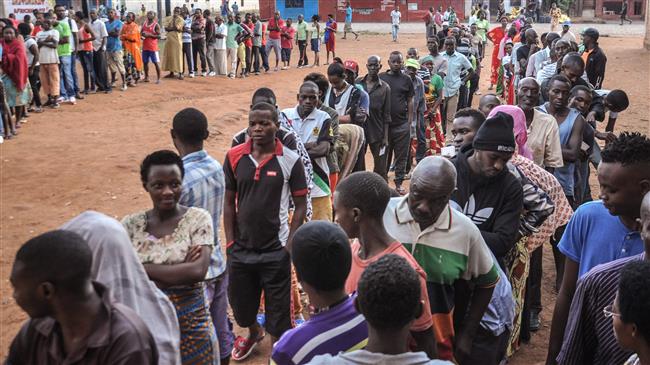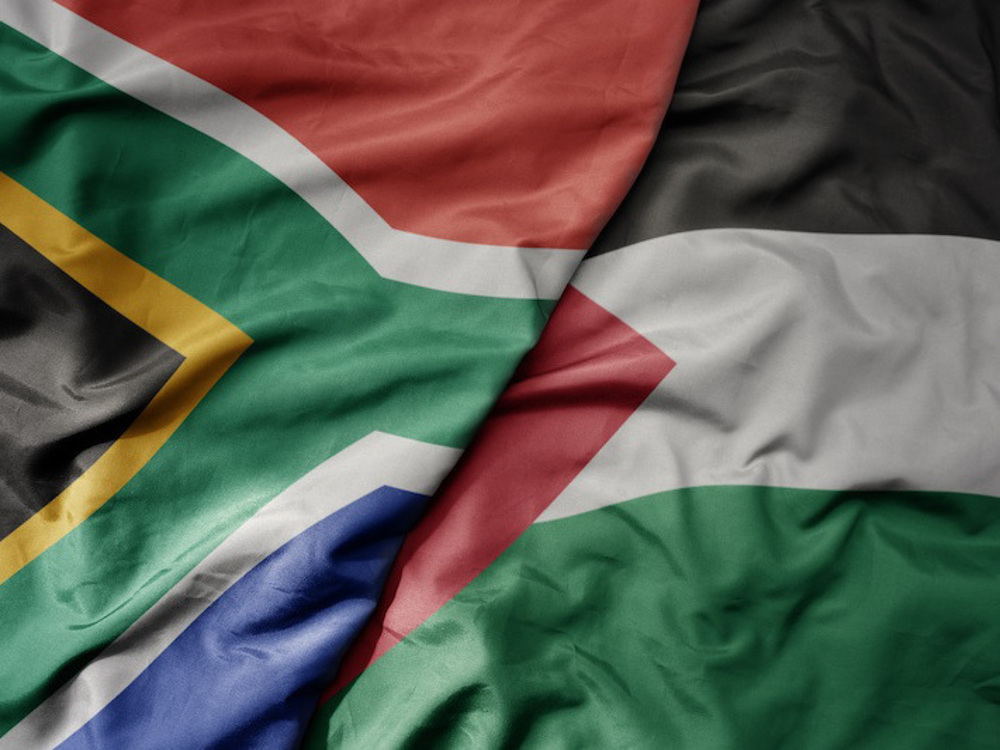Burundians vote in referendum on letting president rule until 2034
Burundians voted Thursday in a referendum on constitutional reforms that, if passed, will shore up the power of President Pierre Nkurunziza and enable him to rule until 2034.
Police, soldiers and armored vehicles were out in force for the referendum, which comes three years after Nkurunziza sought a controversial third term, triggering a political crisis that has killed 1,200 and forced 400,000 from their homes.
"Long lines have been seen at the opening of polling stations in Bujumbura. Burundian citizens were impatient to go and vote," presidential spokesman Willy Nyamitwe wrote on Twitter.
An AFP photographer also reported hundreds of people at polling stations in northern Burundi, asked simply to vote "yes" or "no" in the "referendum of May 2018" with no question posed on the ballot.
"I came at dawn because I was impatient to vote 'yes' to consolidate the independence and sovereignty of our country," said a farmer, who gave his name only as Miburo, in the town of Ngozi.
Nkurunziza, dressed in an Adidas tracksuit and orange bush hat with a chin strap, queued from 6:00 am (0400 GMT) to cast his ballot, praising people for turning out "en masse".

'Campaign of terror'
The changes will be adopted if more than 50 percent of cast ballots are in favor.
With opponents cowed and exiled, there seems little doubt the amendments will pass, enabling the 54-year-old Nkurunziza -- in power since 2005 -- to remain in charge for another 16 years.
The campaign period, like the preceding three years of unrest, has been marked by intimidation and abuse, say human rights groups.
The International Federation for Human Rights (FIDH) said there had been "a campaign of terror to force Burundians to vote yes".
However not all did so.
A 60-year-old woman, speaking on condition of anonymity, told AFP by telephone she voted no "out of conviction, to show that a large part of the population is resisting even if I know they will steal our vote."
Witnesses told AFP that in some districts, members of the youth militia Imbonerakure -- accused by rights groups of atrocities -- were going door to door ordering people to polling stations to vote.
Some 4.8 million people, or a little under half the population, have signed up to vote, according to the Independent National Electoral Commission (CENI).
While the exiled opposition group CNARED has called for a boycott, Nkurunziza's main opponent inside Burundi, former rebel Agathon Rwasa, has urged his supporters to vote no.
A presidential decree ruled earlier this month that anyone advising voters to boycott the vote risks up to three years in jail.
No international observers are monitoring the vote, and most foreign correspondents were prevented from entering the country due to administrative hurdles.
Burundi's press regulator has suspended broadcasts by the BBC and Voice of America (VOA) and warned other radio stations, including Radio France International (RFI), against spreading "tendentious and misleading" information.

Fragile peace at risk
For many critics, the referendum is yet another blow to hopes of lasting peace in the fledgling democracy, which experienced decades of conflict marked by violence between majority Hutu and the minority Tutsi who had long held power.
Decades of sporadic violence exploded in 1993 after the assassination of the country's first Hutu president Melchior Ndadaye, marking the start of a civil war that would last until 2006 and leave more than 300,000 dead.
A peace deal, signed in the Tanzanian city of Arusha in 2000, paved the way to ending the fighting and included a provision that no leader could serve more than two five-year terms.
Nkurunziza's third term circumvented that clause and the proposed constitutional amendments will abolish it, increasing terms to seven years and allowing Nkurunziza to stand again in 2020.
Nkurunziza's critics say he is fueled by a "messianic vision" of his own rule, with a cult of personality.
The leader is an evangelical who believes he was chosen by God to rule the small, poor east African nation, and spends much of his time engaged in religious activities or playing football.
(Source: AFP)
Iran: Syrian people will decide their future without foreign interference
IRGC says Iran’s power exceeds borders, warns enemies to adjust themselves
Dozens detained, several wounded in Israeli raids in West Bank
‘Ethnic cleansing’: Hamas blasts Israeli attacks on Gaza hospital amid intl. silence
Saudi delegation meets HTS leader at presidential palace in Damascus
Relentless Israeli ceasefire violations justify need for self-defense: Lebanese MP
Tel Aviv tells Damascus Israeli forces will remain in occupied territory: Report
Dec. 22: ‘Axis of Resistance’ operations against Israeli occupation










 This makes it easy to access the Press TV website
This makes it easy to access the Press TV website